The number of foreign observers for the December 30 polls has come down significantly after the Asian Network for Free Elections cancelled its observation mission citing "Bangladesh government's inability to issue visas” within the required timeframe.
ANFREL, a regional network of civil society organisations funded by the US through the National Democratic Institute, was supposed to send 32 observers to Bangladesh.
With this cancellation, 146 international observers will now monitor the 11th parliamentary election, the lowest since 2001 polls when the number was 225.
Some 178 international observers, including 32 from ANFREL, were set to monitor this election, said sources in the Election Commission.
At the same time, the number of local observer will also be the lowest since 2001 as 25,920 of them will monitor this election while the 2001 polls had more than 2.18 lakh. The reason behind this fall is attributed mainly to fund crunch.
As of yesterday, the EC said, 26,066 observers are set to monitor the election. The number of voters and the polling stations, however, has increased.
'DISAPPOINTED'
US State Department Deputy Spokesperson Robert Palladino in a statement yesterday said the US is disappointed by the “Bangladesh government's inability to grant credentials and issue visas within the timeframe necessary to conduct a credible international monitoring mission to the majority of international election monitors from the ANFREL”.
"As a result, ANFREL was forced to cancel its observation mission for the December 30 national election," he said.
Asked about the issue last night, Home Minister Asaduzzaman Khan Kamal said, “I can't say anything clearly right now. Usually, international polls observers contact the Election Commission through the foreign ministry. Then it is referred to us for checking.
“One thing I can say that we got a list from Americans and most of them were of Asian origin. That's why our intelligence officials are taking time to check it.”
In his statement, Palladino said the lack of an international observation mission makes it even more important for the government to complete the accreditation of all the local NGOs that constitute the Election Working Group, which includes some funded by USAID, so they can conduct the vital work of monitoring the election.
Spokesperson for the UN Secretary-General Stéphane Dujarric at a press briefing in UN Headquarters on Friday said, “Civil society and electoral observers also need to be fully supported to play their role in this process."
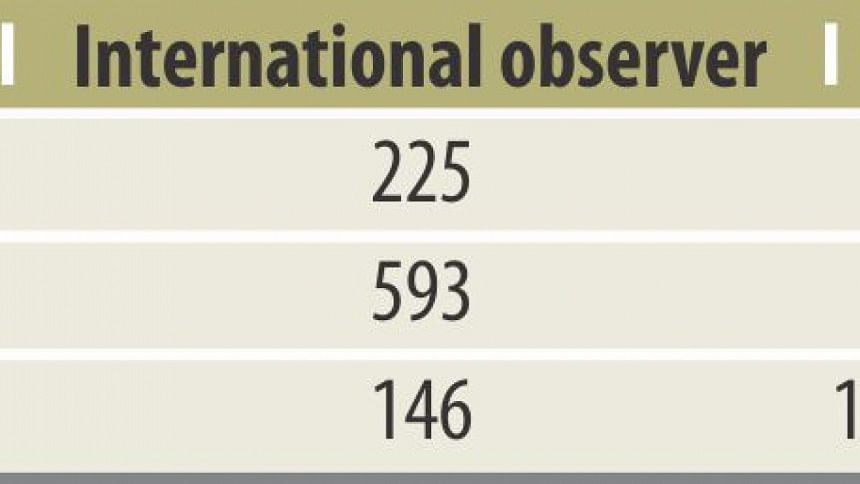
Mark Field, British foreign office minister for Asia and the Pacific, said, "I am concerned by reports that some civil society organisations in Bangladesh are being prevented from observing the election."
During a debate in the House of Commons on Thursday, he said independent domestic and international observers have a crucial role in helping support a free and transparent process for the elections in 10 days' time.
Earlier, the European Union said it will not send any election monitoring team this year, saying in budgetary terms, it's quite expensive and takes a lot of effort and preparation.
Leaders of the Election Working Group (EWG), an alliance of 22 local organisations that monitor election, said members of the combine were in confusion whether they will be able to monitor election as NGO Affairs Bureau has not given "no abjection certificate" to them about covering election.
“We did not get NOC as of today [Saturday],” EWG Chairman Abdul Awal told The Daily Star yesterday. "If we do not get NOC by tomorrow [today], it will be tough for us to hold training of the observers.”
FOREIGN OBSERVERS
EC sources say 178 observers on behalf of 16 countries and international organisations have so far shown interest in monitoring the election. Of them, 97 are foreigners, many of them stationed in Dhaka, and the rest are Bangladeshis.
The US will deploy a maximum of 65 observers and 32 of them are foreigners; Germany will assign eight observers including six foreigners; Japan nine observers including four foreigners, and Switzerland six observers including two foreigners. The Netherlands will engage four foreigners.
France will field four observers including two foreigners; Denmark three observers including one foreigner, and Norway two observers including one foreigner.
Democracy International will send 22 observers and two of them are foreigners while Asian Foundation seven observers including two foreigners.
Four observers including one foreigner will be from the International Foundation for Electoral Systems.
Nepal-based Dipendra Kandel Initiative will send three foreigners while US-Based International Republican Institute will field four observers including two foreigners.
Apart from this, the EC invited two representatives each from member countries of the Forum of Election Management Bodies of South Asia.
It also invited Organisation of Islamic Cooperation (OIC), the Commonwealth and the Philippines-based Association of Asian Election Authorities (AAEA) to send representatives to monitor the polls.
LOCAL OBSERVERS
EC Joint Secretary SM Asaduzzaman yesterday said they approved 25,920 local observers from 81 organisations to monitor the election.
These organisations applied for the approval of 34,671 local observers, according to EC sources.
Around 1.6 lakh domestic and 600 international observers monitored the December 29, 2008 election. About 2.18 lakh domestic and 225 international observers monitored the election in 2001.
However, the number of voters and the polling stations is much higher this time than in 2008.
In the 2001 polls, 29,978 polling centres were set up for 7.50 crore voters. In the 2008 polls, there were 35,263 polling centres for 8.1 crore voters.
In the December 30 election, around 40,183 polling stations will be set up for more than 10.41 crore electorates.
About the fall in the number of local observers, Abdul Awal said they have decided to deploy fewer observers due to unavailability of funds.
Asked about the reason behind the fund shortage, Awal said development partners were losing interest in funding election observation missions across the world. “This can be one reason.”
Their priorities for Bangladesh are also changing. Many development partners are now channelling funds for the Rohingya refugees, he added.
Election observers contribute greatly to making sure polls are free and fair. Their presence in large numbers is therefore very crucial, said M Hafizuddin Khan, former adviser to a caretaker government.


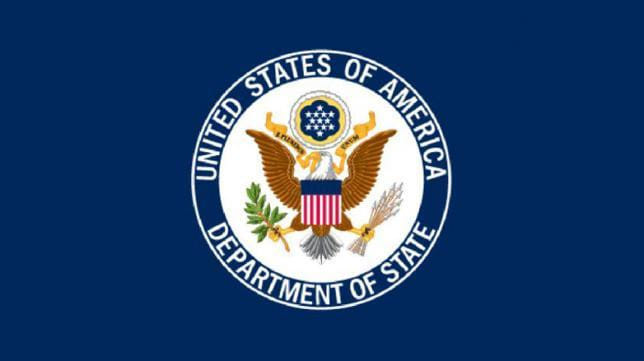

 For all latest news, follow The Daily Star's Google News channel.
For all latest news, follow The Daily Star's Google News channel. 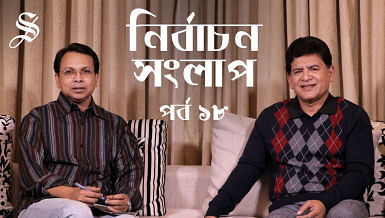
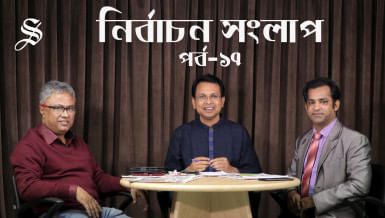
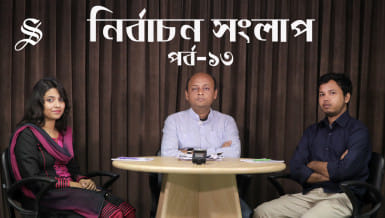
Leave your comments